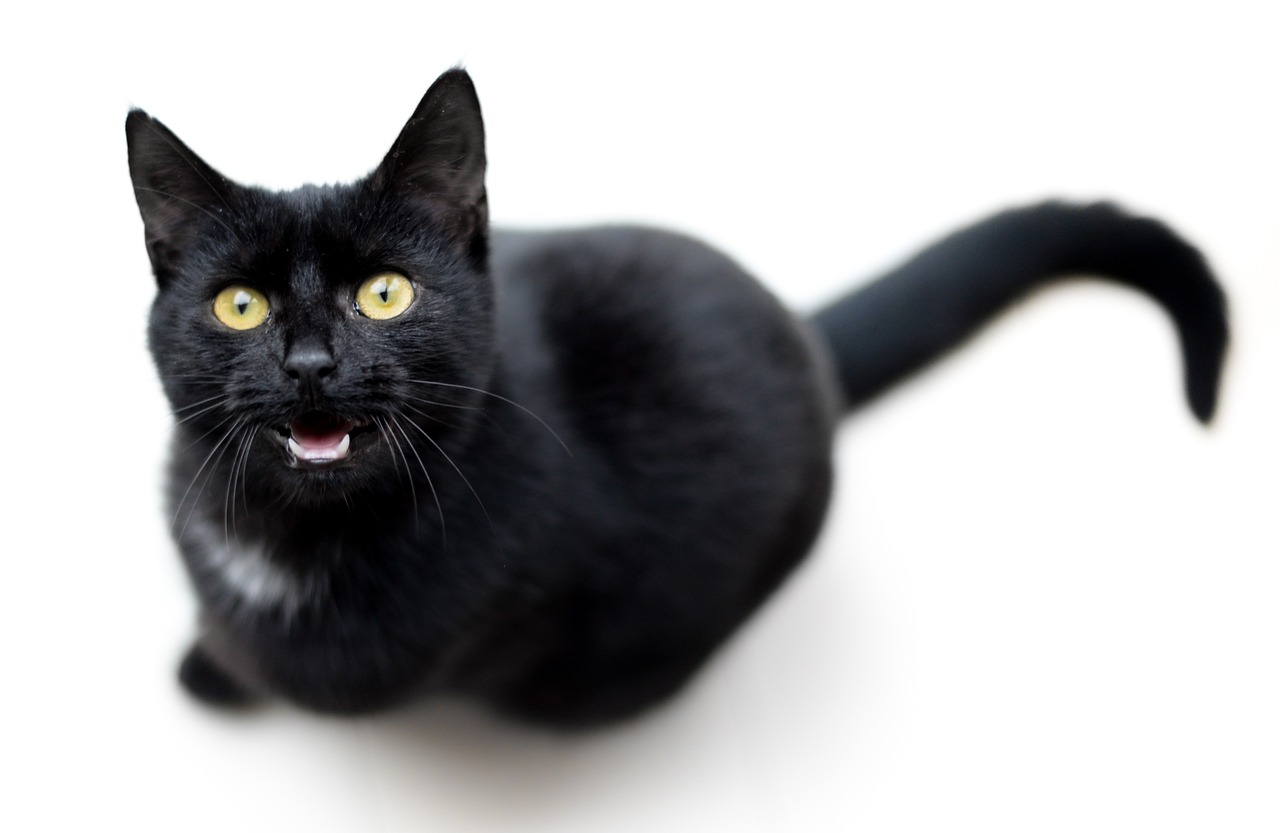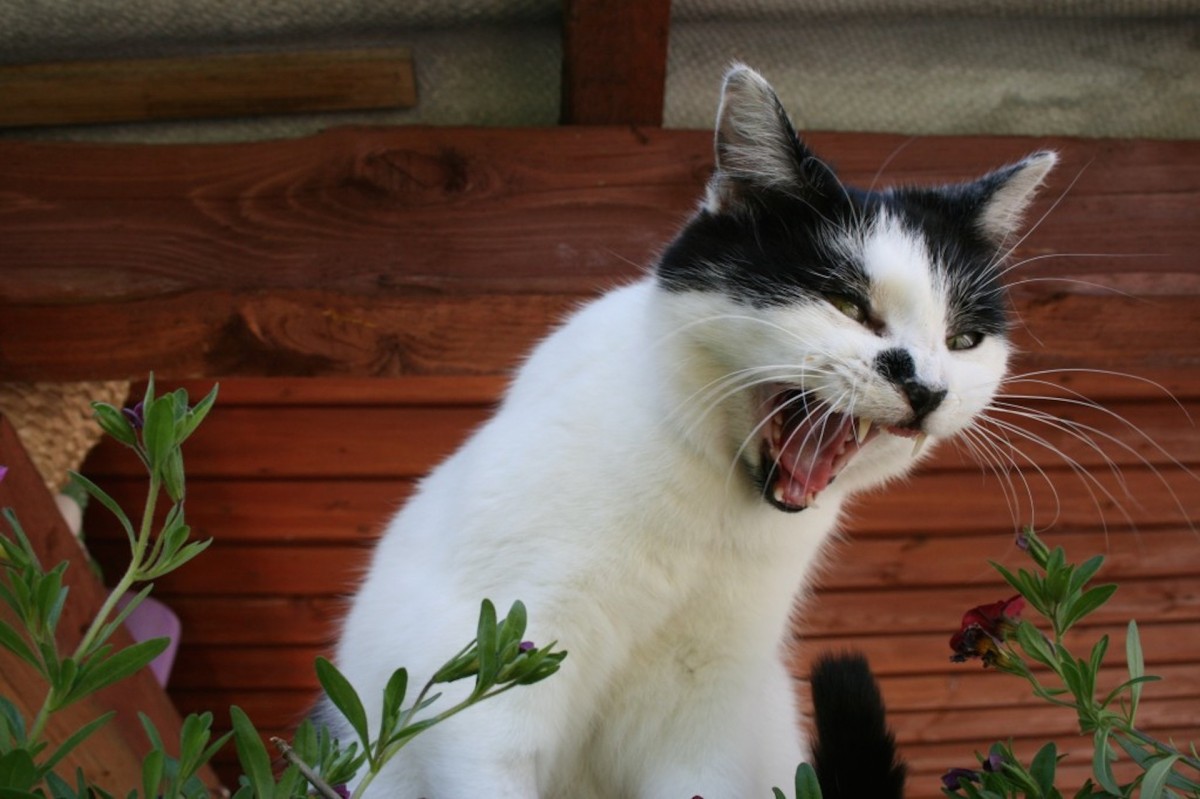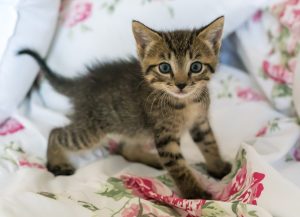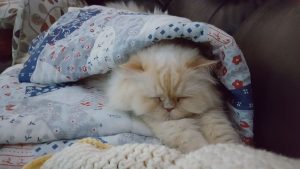
Why Your Cat is Meowing at Night
A solitary hunter watching his prey, the cat is rather silent. It must be as discreet as possible to protect itself and carry out its predatory activity. Cats live together and communicate with each other through gestures, looks, and the emission of pheromones. The meows are usually calls for something. Let’s see why the cat meows at night.
Meows: day and night calls
Both day and night, meowing is necessarily triggered by specific events.
Meowing implies that the cat is looking for someone necessary to its well-being or emotional state at the time. It is used to locate an animal with a bond of dependence: kittens and their mother, sexual partners, or animals and their caretaker.
Meowing is also an expression of discomfort. It is then provoked by the pain felt by the sick animal, by the anxiety felt in a situation of confinement (locked cat), or in case of loss of reference (stray cat, senile cat).
The further away the cat receives the messages, the louder the meows. And the more he is in a negative emotional state, the more sinister the meows will be.
Focus on the senile cat’s meow: Senility in the old cat is characterized by hoarse meows usually associated with the cat’s movements. Certain medications can slow down the cognitive loss of old age and limit the stress caused by these new weaknesses.
Cat meowing at night: nocturnal habits
Cats are crepuscular creatures. It has many nocturnal activities, including :
hunting rodents, such as rats, which are also of the evening;
surveillance and exploration of territories, especially if they are frequented by cats or dogs that their masters let in at night. They are insatiably curious and take advantage of the absence of danger to enter the premises.
All these activities are silent, but what the master can not control is the development of nocturnal activities of other animals, strangers to the house. The locked-in cat notes all the clues left by their presence. He looks through the window and knows their schedules and the type of activity linked to their passage. He smells pheromones, especially those of unsterilized cats, and hears movements in the same building, on the roofs, or in the garden.
Nighttime meowing may be a direct call to cats in the building or neighborhood or a request to the owner for outdoor access to interact with a fellow cat or to hunt for prey.
Cat meowing at night: catfights

Cats are territorial, especially when they don’t belong to anyone else, and must share feeding and shelter facilities. Fights can break out when newcomers fail to respect established patrol and usufruct schedules, especially if resources are scarce. It is not really meowing, but rather loud and aggressive vocalizations whose purpose is mainly to impress the opponent and make him run away.
In summary, the nocturnal cries expressed by cats are essentially related to the following:
the confinement, which can be a source of boredom and frustration for an animal with nocturnal activities;
the external presence of a congener, in particular, if it is agitated or in distress, or heat;
illness and especially senility in the older cat.
Cat meowing at night: other meanings
Day or night, the cat’s meowing can have other meanings and thus express maternal instinct, heat, and confinement.
Maternal instinct
In case of separation, even temporarily, the very young kittens meow when they are isolated from their protector; it is their way of calling their mother. Similarly, to locate adventurous and lost kittens, the mother tries to call them by meowing. The meowing is a sign of bonding.
Pet cats also learn to get what they want by meowing: attention and petting. These are solicitation meows, insistent and continuous but not very loud.
Cats in heat
When cats are in heat, they arouse the lust of males. The partners meow to warn each other of their presence and availability. These meows are very loud and sound like a baby crying and crying.
Note: vocalizations during male-male encounters are not meowing.
The confinement of the cat
No animal is born to be held in captivity. The indoor domestic cat can adapt to this context in a space that is not cramped if its ethological needs are respected, if it has no known freedom and if the owner plays the role of the mother cat.
Cats that do not adapt to confinement are under stress, reflected in a particularly hoarse, mournful, and loud meowing.
What can be done to prevent chronic nighttime cat meowing?
Several actions can be taken depending on the context:
- identify the meowing to understand the cause;
- sterilize the cat if it is not already done;
- bring the sick or elderly cat to a veterinarian (there are specific tranquilizers for senility)
It is difficult, if not impossible, to remain unresponsive to an animal’s recurrent meowing. He must want something from you. Listening to your cat often prevents a lot of problems! The question to ask yourself is: what does he want?
Ensure your cat has access to his kibble, water, a clean litter box, and his usual sleeping area. If your cat has already eaten its food, stagger the feeding times, splitting them up so that food is available at night.
If your cat is bored, try to share activity times: reserve social interaction for the evening and have a wide range of toys and novelties that you can alternate to renew her interest at night. Having someone babysit your cat during the day to engage him in a different environment can remedy his boredom, especially if he has friends there.
If you have nighttime cravings, don’t get into the habit of sharing them with your cat, or these foodie appointments will become a ritual.
If your cat wants to go outside and you don’t favor it, ensure she can observe what’s happening outside from a window or balcony. For cats in apartments, giving them access to an open window can calm them down. However, be sure to secure the window to prevent falls. Remember that a cat that does not adapt to confinement should not be kept locked up.
If foreign cats frequent your exterior, try to block their access with an electric fence or a water jet triggered by a motion detector. Finally, don’t leave food out.





